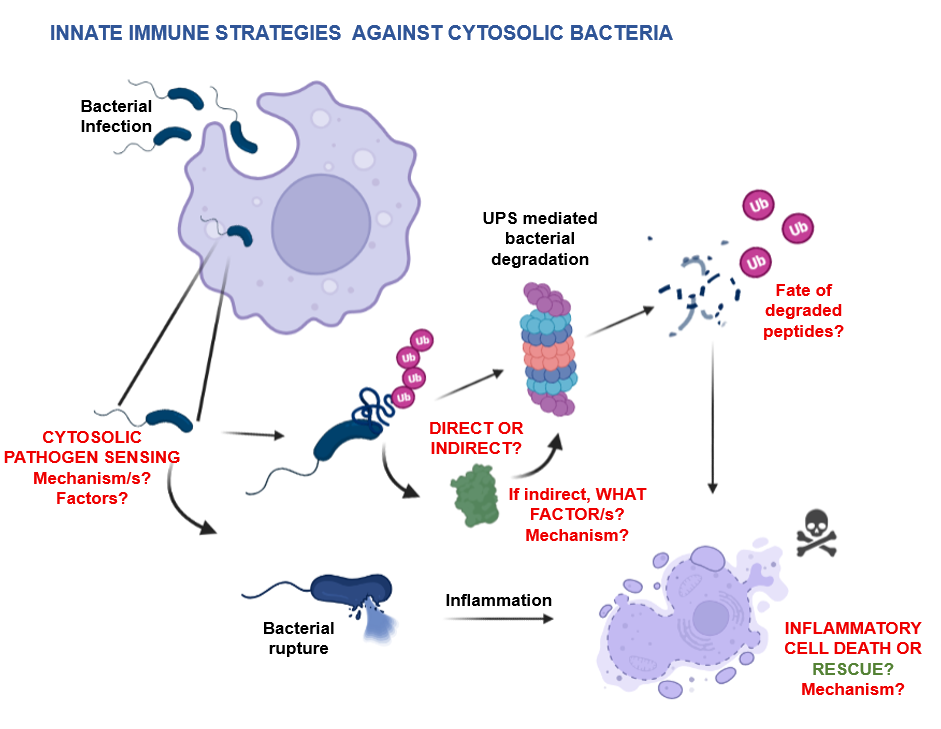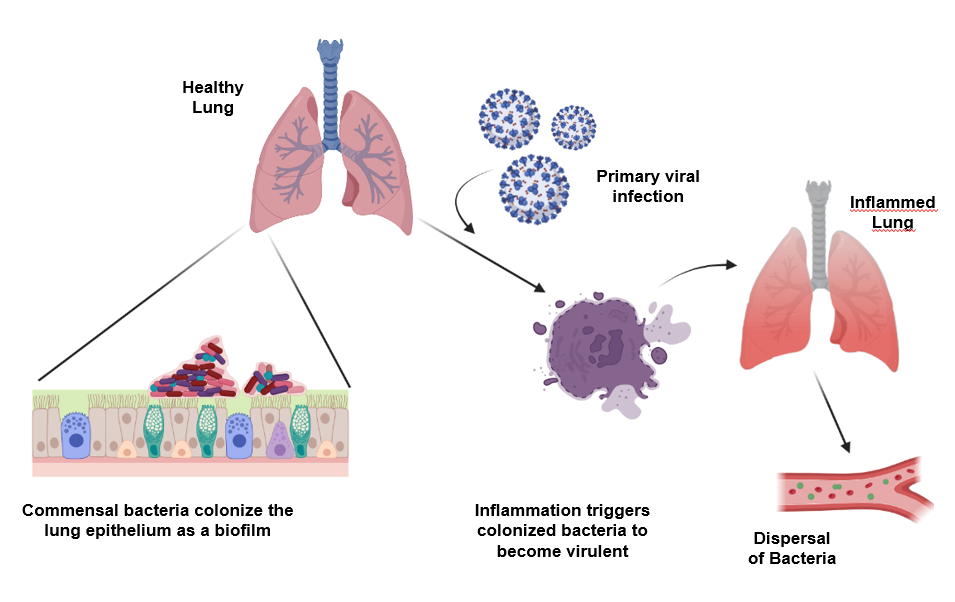RESEARCH
PROF. ANIRBAN BANERJEE LAB
Our research intends to decipher the hidden clues about opportunistic bacterial pathogenesis and how this drives pathogen evolution. We use Streptococcus pneumoniae (SPN) as a model for the classic opportunistic pathogen. SPN asymptomatically colonizes in the human nasopharynx which is not only a prerequisite for it to cause severe diseases, such as pneumonia, sepsis and meningitis but also for transmission to new individuals. This is key to SPN’s existence as it lacks any other major environmental reservoir. Consequently, demands of colonization or search for a new reservoir could drive its evolution.
Innate Immune Strategies Against Cytosolic Bacteria
Intracellular bacterial invasion elicits innumerable host immune responses, which are critical to maintaining cytosolic sterility. Although many of the PAMPs, the associated PRRs, and their molecular regulation have been discovered, a lot remains to be understood. Ubiquitination has recently evolved to be one such pathogen-sensing strategy. Our initial experiments demonstrate the presence of ubiquitin chains on bacterial surface proteins for the first time. We aim to learn more about the host factors and the corresponding bacterial targets involved in this combat. As ubiquitination of proteins is often succeeded by proteasomal degradation, we further question whether this transfer of ubiquitinated substrates to proteasome is direct or facilitated by intermediary players. Additionally, we also intend to decipher the fate of proteasomally degraded peptides in augmenting defense against the intruding pathogen. Moreover, it has been observed that cytosolic bacterial rupture by host factors releases toxic inflammatory contents. The molecular cues which determine whether the host adopts to circumvent this sudden inflammation and prevent cell death or not is what we propose to decrypt

Mechanisms triggering the lifestyle switch of respiratory bacteria from commensal to opportunistic pathogen

Respiratory commensal bacteria can transform into opportunistic pathogens when triggered by factors yet to be fully understood. Altered host responses post-viral infections is believed to be one such factor. This lethal synergism between viral and bacterial infections has become even more relevant due to respiratory viral outbreaks, including the recent SARS-CoV2. We aim to decipher these unexplored molecular mechanisms by which viral infections augment the lifestyle switch of respiratory microbes
